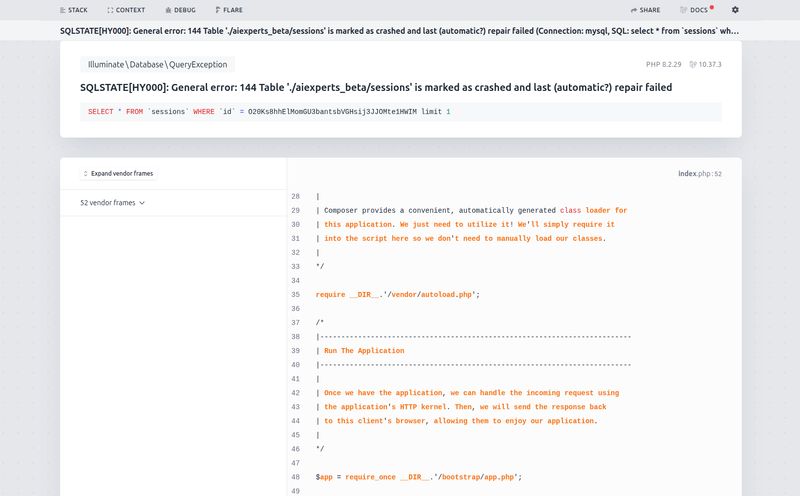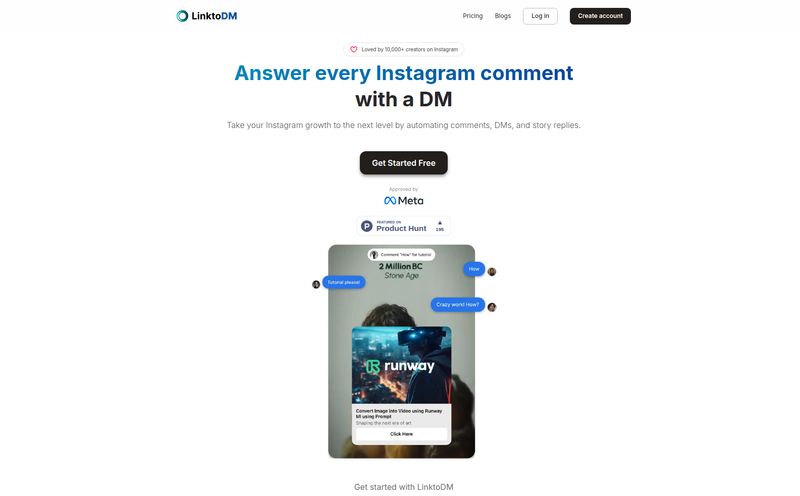Ever find yourself daydreaming during a boring meeting and wonder, “What would Nikola Tesla think about my Wi-Fi issues?” or “What kind of life advice would Cleopatra give me?” Just me? Okay, maybe. But the idea of picking the brains of history's most fascinating figures is a powerful one. It's a curiosity that's deeply human.
So, when I stumbled upon a tool called Ask Famous People, my inner history nerd and my professional SEO-geek brain both did a little happy dance. An AI chatbot, supposedly powered by the mighty GPT-3 and GPT-4, that lets you have a one-on-one with everyone from Albert Einstein to Shakespeare? Sign me up. This sounded like the ultimate party trick and maybe, just maybe, a uniquely engaging way to learn.
I was ready to ask Marie Curie about her research process and maybe get some stock tips from John D. Rockefeller. But then, my little investigation took a weird turn.
What Was 'Ask Famous People' Supposed to Be?
The concept was brilliant in its simplicity. The platform was designed as an interactive chatbot. You’d pick a figure from their list – historical icons, literary characters, you name it – and just start typing. The AI, trained on vast amounts of data about that person, would then generate responses in their voice and personality. It’s like a digital seance, but without the flickering candles and spooky music.
Think about it. Instead of just reading a dry biography, you could ask questions. You could challenge their ideas, get their “take” on modern events, or just see how they’d react to a good old-fashioned meme. The potential for both entertainment and education felt huge. It promised a bridge across time, built with code and algorithms.
My First Impressions and the Big 404 Mystery
Excited, I set out to find this digital time machine. I tracked down the URL, ready to fire off my questions. And what did I find?
404. This page could not be found.

Visit Ask Famous People
Ah. The digital equivalent of a disconnected phone number. I tried a few different links, did some digging... nothing. It seems Ask Famous People has become one of the very ghosts it promised to let us chat with. It’s a common tale in the tech world, especially in the middle of this AI gold rush. For every breakout star, there are dozens of fascinating projects that flicker for a moment and then vanish.
But honestly, that almost makes it more interesting to talk about. It's a perfect case study of a fantastic idea hitting the harsh reality of the internet.
The Allure of Chatting with Digital Ghosts
Even if the platform itself is MIA, the idea behind it is worth talking about. Why are we so drawn to this? For me, it boils down to a few things:
- Engagement: Let's be real, reading a textbook can be a slog. But arguing with a cranky AI version of Karl Marx about economic theory? That’s memorable. It turns passive learning into an active experience.
- Curiosity: It scratches that fundamental “what if” itch. It’s pure human curiosity, weaponized with some pretty sophisticated tech.
- Accessibility: A tool like this breaks down barriers. It makes history feel less like a stuffy museum exhibit and more like a living, breathing thing you can interact with. The interface, from what I gathered, was dead simple – just a chat window. No complex manuals needed.
The experience is less about getting historically perfect answers and more about the illusion. It's performance art, powered by a large language model. And sometimes, that's enough to spark a genuine interest that leads to real research.
The Inevitable Downsides and AI Hallucinations
Of course, a tool like this comes with a truckload of caveats. The biggest one, and the one that probably keeps historians up at night, is accuracy. These AIs are not sentient beings channeling the dead. They are incredibly complex pattern-matching machines. This leads to some obvious problems.
The responses are generated by an AI, and as we all know from our adventures with ChatGPT and other bots, they can be confidently wrong. This is what the industry calls “AI hallucinations.” An AI might have Leonardo da Vinci spouting facts that are completely anachronistic or misrepresenting a historical figure’s views entirely. There’s a fine line between engaging impersonation and creating historical fan-fiction. Without massive disclaimers, it could easily lead to misconceptions.
It's also limited by the AI model itself. If the training data on a lesser-known figure is sparse, the AI's personality will be thin, generic, or just plain wrong. It can’t create what isn’t there in the data. So while you might get a great Einstein, a conversation with, say, Hatshepsut might feel less authentic.
The Pricing Conundrum
So, what would something like this cost? Well, that's another mystery. The platform had no public pricing page before it disappeared. My educated guess, based on similar tools in the market, is that it likely would have followed a freemium model. Perhaps a few free chats a day to get you hooked, with a monthly subscription (maybe in the $10-$20 range) to unlock unlimited conversations or access to more premium characters.
That's the standard playbook for AI SaaS tools right now. It balances getting a large user base with finding a way to pay for those very expensive API calls to OpenAI. But without a live site, we can only speculate.
So, Are There Any Alternatives That Actually Work?
Yes, absolutely! The idea behind Ask Famous People was not wholly unique, and other platforms have executed it with great success. If you're itching to try this for yourself, the undisputed king of this niche is Character.ai.
It's a massive platform where users can not only chat with a gigantic library of pre-made characters (historical, fictional, and even inanimate objects) but also create their own. The community is huge, the technology is solid, and it's a fantastic (and often hilarious) way to see this concept in action. If you were excited by the premise of Ask Famous People, then you owe it to yourself to go lose an hour or two on Character.ai.
Frequently Asked Questions
What was Ask Famous People supposed to do?
It was an AI chatbot platform designed to let users have interactive conversations with AI-powered impersonations of famous historical figures and fictional characters, using GPT-3 and GPT-4 technology.
Why can't I access the Ask Famous People website?
The website currently shows a "404 Not Found" error, which means the page is gone. The project is likely discontinued, abandoned, or moved without a redirect. It's a common occurrence for new tech tools.
Are AI character chatbots historically accurate?
No, not reliably. They should be treated as entertainment, not as educational sources. AIs can generate inaccurate information (a phenomenon known as "hallucination") and misrepresent a figure's true personality or beliefs. Always cross-reference with reliable sources.
What are some good alternatives to Ask Famous People?
The most popular and feature-rich alternative is Character.ai. It offers a vast library of characters to chat with and allows users to create their own AIs.
Was Ask Famous People free?
There was no public information on its pricing model before it went offline. It likely would have used a freemium model, with a certain number of free messages and a paid subscription for unlimited access, which is common for such services.
Is it safe to use AI character chatbots?
Generally, yes, as long as you don't share sensitive personal information. Remember you are talking to a computer program. Treat it as a public forum and enjoy the novelty without compromising your privacy.
A Cool Idea, A Quiet Exit
So, Ask Famous People remains a bit of an enigma. A fantastic concept that, for one reason or another, didn't make it. It’s a classic story from the front lines of the tech boom: high concept, big promise, and a silent disappearance. It serves as a good reminder that for every tool that changes our workflow, there are countless brilliant ideas that end up as 404 errors.
But the desire to connect with the past, to make history interactive and personal? That’s not going anywhere. And I, for one, am excited to see what the next attempt at building a digital time machine looks like. Hopefully, the next one remembers to pay for its domain hosting.
References and Sources
- Britannica, The Editors of Encyclopaedia. "Hatshepsut". Encyclopedia Britannica, https://www.britannica.com/biography/Hatshepsut.
- Character.ai. The official website for the character chatbot platform, https://character.ai/.



